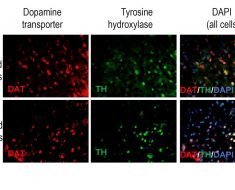A quarter of intensive care patients are readmitted to hospital shortly after returning home and some of these readmissions are avoidable, research suggests.
High levels of carer stress, difficulty understanding health and social care packages and psychological trauma all contribute to high rates of return, the findings show.
Pinpointing the reasons for unplanned readmissions is key to developing care packages that support patients at home and could save vital funds, researchers say.
After-hospital care packages vary between hospitals but unplanned hospital readmissions are thought to cost the NHS in England £2 billion per year.
The study refers to patients who have had stays in intensive care units (ICU)—specialised wards that look after people who are extremely ill and need close monitoring, including patients with sepsis, car crash victims and those recovering from heart attack.
Findings from more than 55,000 anonymised records from ICU patients in Scotland showed that one in four patients experienced unplanned readmissions within three months of leaving hospital.
Researchers led by the University of Edinburgh interviewed 58 ICU patient volunteers and unpaid carers about their wellbeing, care services and other issues that they felt contributed to their return to hospital.
Findings showed that in some cases, readmission was medically unavoidable and linked to acute illness. However, around half of the patients felt that their readmission was linked to a ‘perfect storm’ of factors, including carers stress, psychological trauma after facing near-death and poor understanding of health and social care systems.
Contributing factors that were commonly mentioned by patients and carers were grouped into ten categories including poor communications between acute and community based care and inadequate psychological care.
One patient who took part in the study, said: “I’ve suffered with depression for 20 years on and off. It’s reactive depression and this whole thing has been so traumatic. When I got out of hospital it was a downward spiral…”
Another patient who was interviewed, said: “I have good support from my husband but totally rely on him. Then he wasn’t here. He had two weeks work… I was on my own. Not eating properly. I think that’s how I ended up in hospital.”
Researchers say the findings highlight the need for services to take into account complex psychological and social needs and for patients to be better supported in the months leaving ICU.
The study, published in the journals Thorax and BMJ Quality and Safety, was funded by the Chief Scientist Office, part of the Scottish Government Health Directorates.
Lead researcher, Professor Tim Walsh, Director of the Edinburgh Critical Care Research Group at the University of Edinburgh, said: “This is a fascinating chance to learn from patients and understand avoidable reasons why they might be readmitted to hospital, so that we might spot those most at risk. Our findings show that we have some way to go to improve quality of life for intensive care survivors.
Source: Read Full Article





